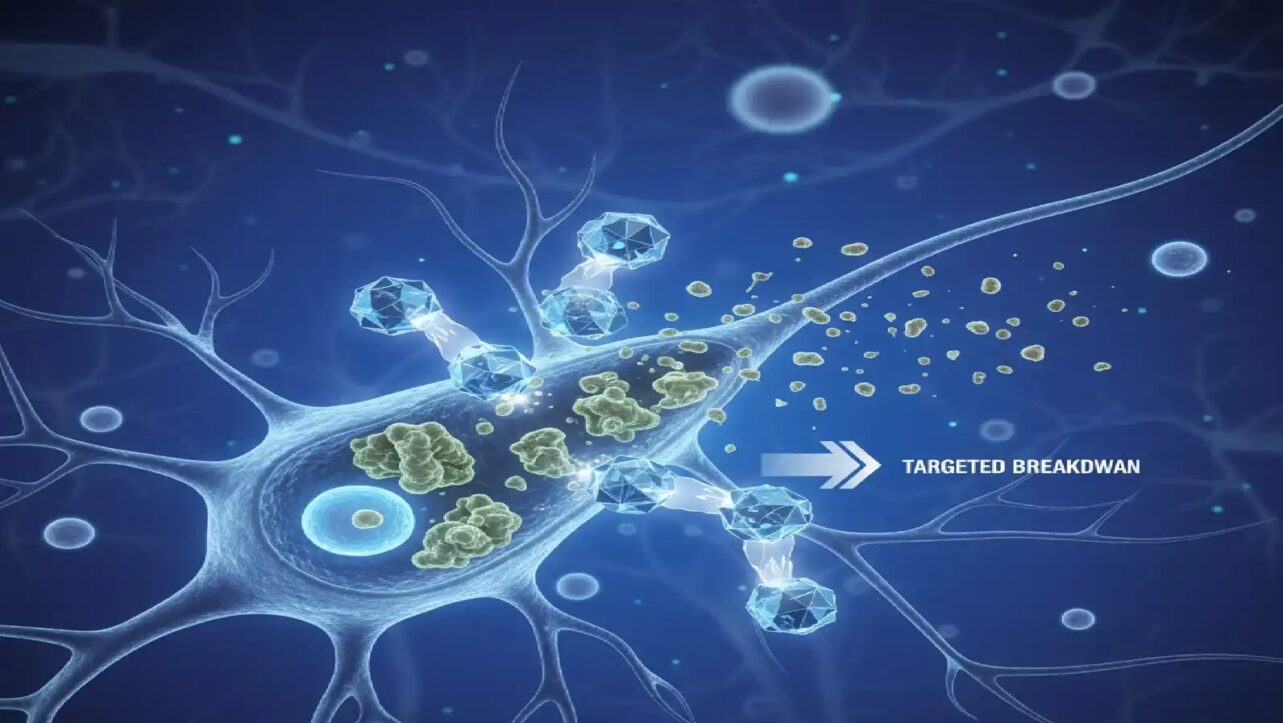A startling new study from Purdue University has uncovered how fat buildup inside the brain’s immune cells may drive the progression of Alzheimer’s disease—pointing to a novel target for future therapies.
The Discovery: Fat Clogs the Brain’s Immune Defense
Traditionally, Alzheimer’s research has focused on the toxic protein plaques and tangles that accumulate in the brain. However, a Purdue-led team, including Professor Gaurav Chopra, reveals that the brain’s own immune cells, called microglia, become overwhelmed by fat when exposed to amyloid beta, the protein central to Alzheimer’s. This fat overload cripples the microglia, preventing them from clearing amyloid and protecting neurons.
The Culprit: An Enzyme Called DGAT2
The researchers identified a specific enzyme, DGAT2, as the key driver behind this harmful fat accumulation in microglia. In lab experiments, inhibiting or degrading DGAT2 reduced fat accumulation in these cells, restored their ability to clear amyloid, and improved neuronal health in Alzheimer’s models. “By targeting DGAT2, we may be able to restore the brain’s immune shield against Alzheimer’s,” explained study co-author Palak Manchanda.
Why This Matters
While most Alzheimer’s drug development has targeted amyloid and tau proteins, this study suggests that correcting faulty fat metabolism within brain immune cells could offer a complementary therapeutic strategy. Importantly, these findings are preclinical, meaning they are based on animal studies. Human trials are needed to determine if similar approaches could benefit patients.
What the Media Missed
Most news stories about fat and Alzheimer’s focus on the dangers of belly fat, recommending diet and exercise as prevention. While this is true, Purdue study highlights a different, internal process—fat metabolism within brain cells—that is not addressed by current public health advice. This gap means the public may not fully appreciate the complexity of Alzheimer’s risk factors or the potential for future, precision therapies.
Expert Perspective
“It’s incredibly exciting to connect fat metabolism to immune dysfunction in Alzheimer’s,” said study co-author Priya Prakash. She emphasized that while this is a significant step forward, managing overall metabolic health—including weight and blood sugar—remains an essential part of reducing Alzheimer’s risk for most people.
Key Takeaways for Readers
- Novel Mechanism: Excess fat inside brain immune cells can disable their protective functions, accelerating Alzheimer’s progression.
- Therapeutic Target: The enzyme DGAT2 may be a new target for drug development, complementing existing approaches focused on amyloid and tau.
- Preclinical Stage: Findings are based on lab models; human studies are needed before any new treatment can be tested.
- Public Health Gap: Current advice focuses on reducing belly fat, but internal brain fat metabolism is a separate, emerging risk factor.
Bottom Line
Purdue’s research opens a new frontier in Alzheimer’s science, revealing how fat inside the brain’s immune cells contributes to disease. While lifestyle factors like diet and exercise remain important for brain health, future treatments may need to address both protein plaques and faulty fat metabolism inside the brain.




















